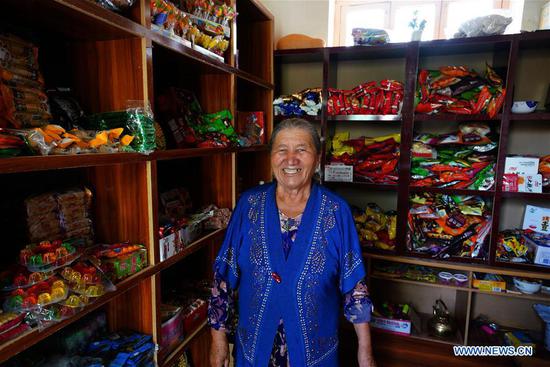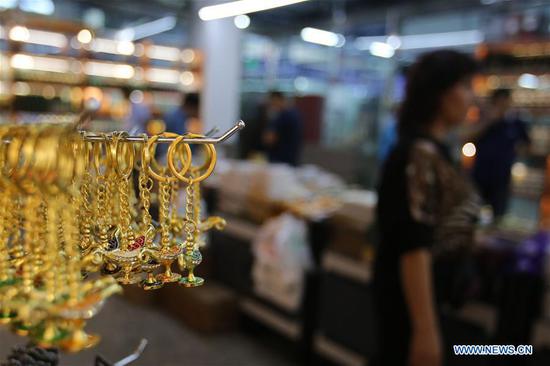
Nannies learn how to take care of babies at a training center in Jimo, Shandong province. (Photo/Xinhua)
China plans to roll out a list of misbehaving nannies and home service companies in an effort to discipline a fast-growing sector fueled by an aging population and relaxation of the family planning policy.
In a circular released on Friday, the National Development and Reform Commission, the country's top economic planner, requested authorities including the central bank, the market regulator and the public security departments to work in coordination and create a credit system targeting wrongdoers in the home service sector.
Authorities were requested to release "at a proper time" a blacklist containing individuals and businesses that violate relevant laws or rules.
After a review, the punitive list will be made public via the Ministry of Commerce website and two credit inquiry platforms-the National Enterprise Credit Information Publicity System and creditchina.gov.cn.
The circular said an incentive list will also be created for complying nannies and businesses. Those on the list would be treated favorably, including fewer government inspections, more tax breaks and better financing terms.
The move aims to create a credit-based management system that supplements the sector's self-discipline and government oversight, as well as to promote the sector's healthy development, it said.
The developments came as the central government works to upgrade the fast-growing sector that has created jobs for tens of millions of rural women.
In June, the State Council released a guideline encouraging domestic service providers to sign labor contracts with their employees, pay salaries higher than the minimum wage, and offer social security to them.
That would bring about drastic changes to home service enterprises that mostly function as matchmakers.
In that role, they have not been obliged to offer pre-work training and have not been held accountable for work related accidents, according to Jiang Ying, a professor at China University of Labor Relations.
"It has made it difficult to discern a nanny's background and credentials," she said.
A spate of scandals involving unqualified nannies have tarnished the sector's image over the last few years.
One of the most high-profile cases involved Mo Huanjing, a nanny in Hangzhou, Zhejiang province, who was sentenced to death last year for arson.
The 35-year-old, who had heavy gambling debts, was found guilty of setting a fire that she had intended to put out to win her client's gratitude and a financial payback. But the fire spread quickly, killing a mother and her three children in the house.




















































